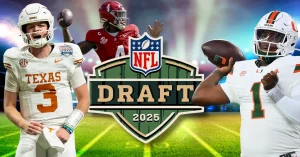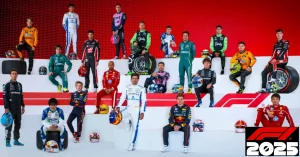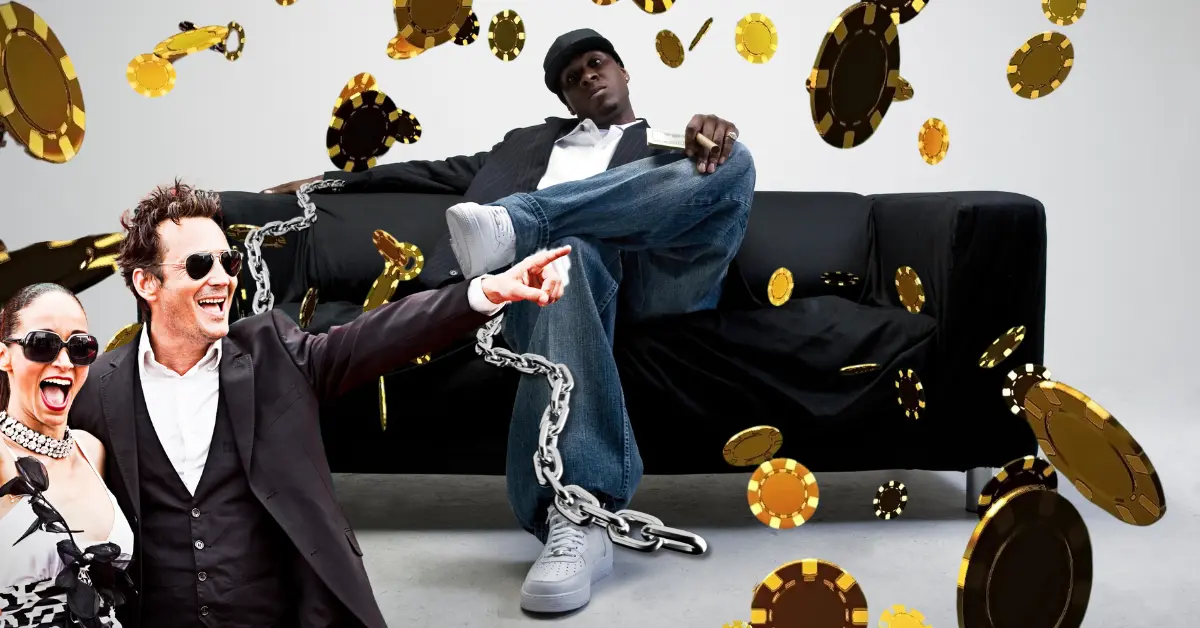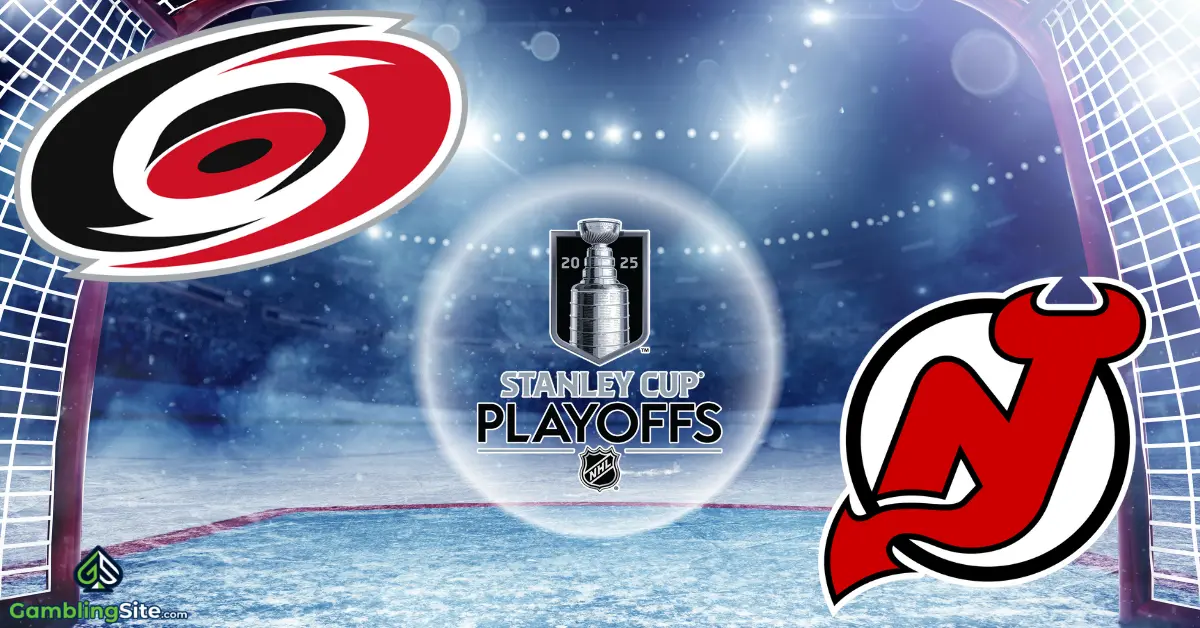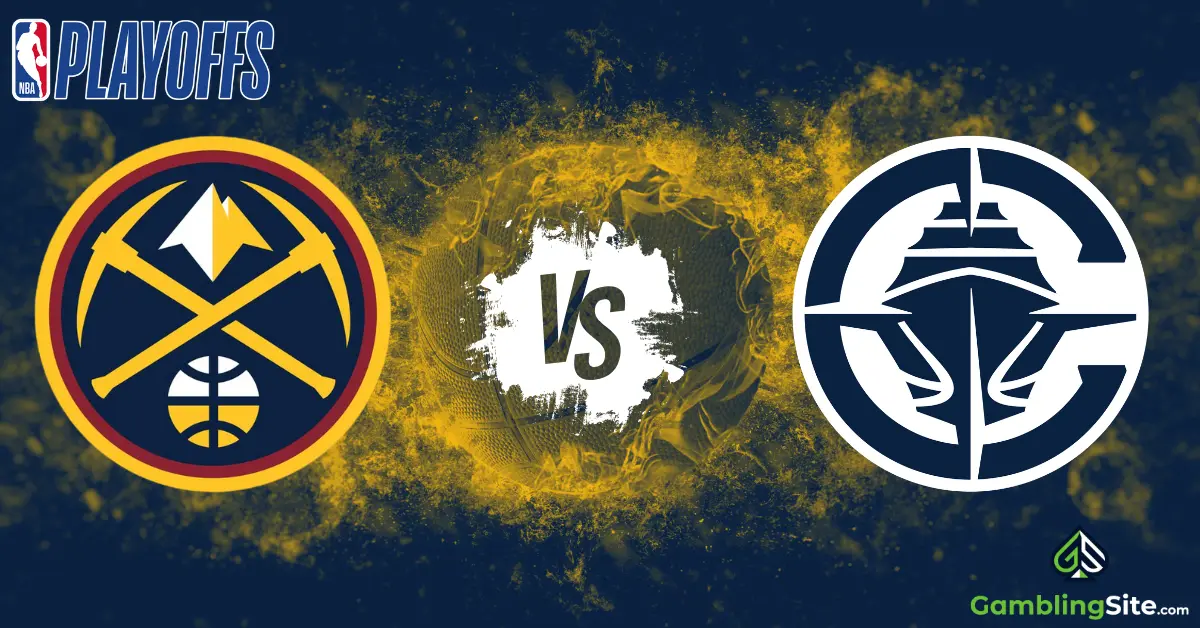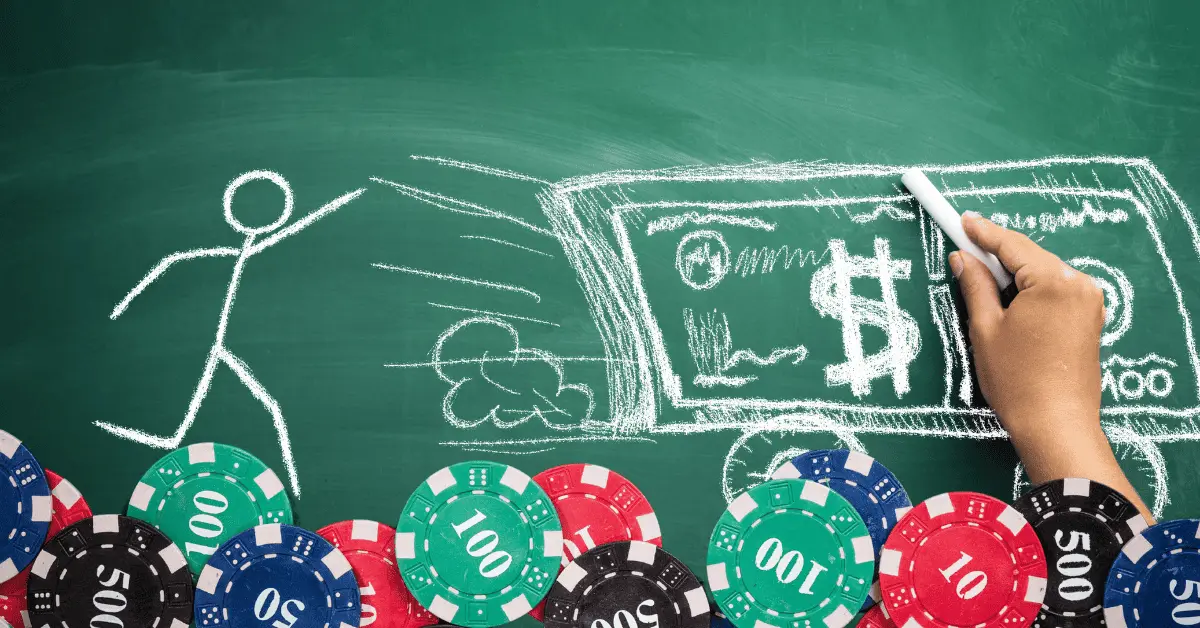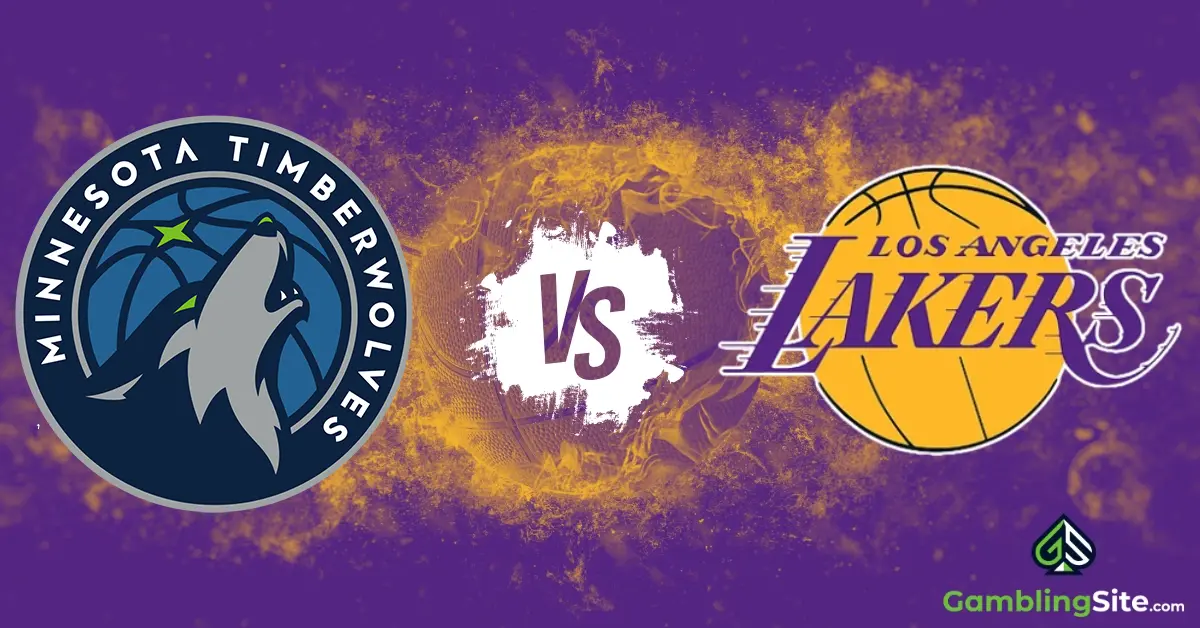The Monty Hall Problem and Its Application in Sports Betting Decisions
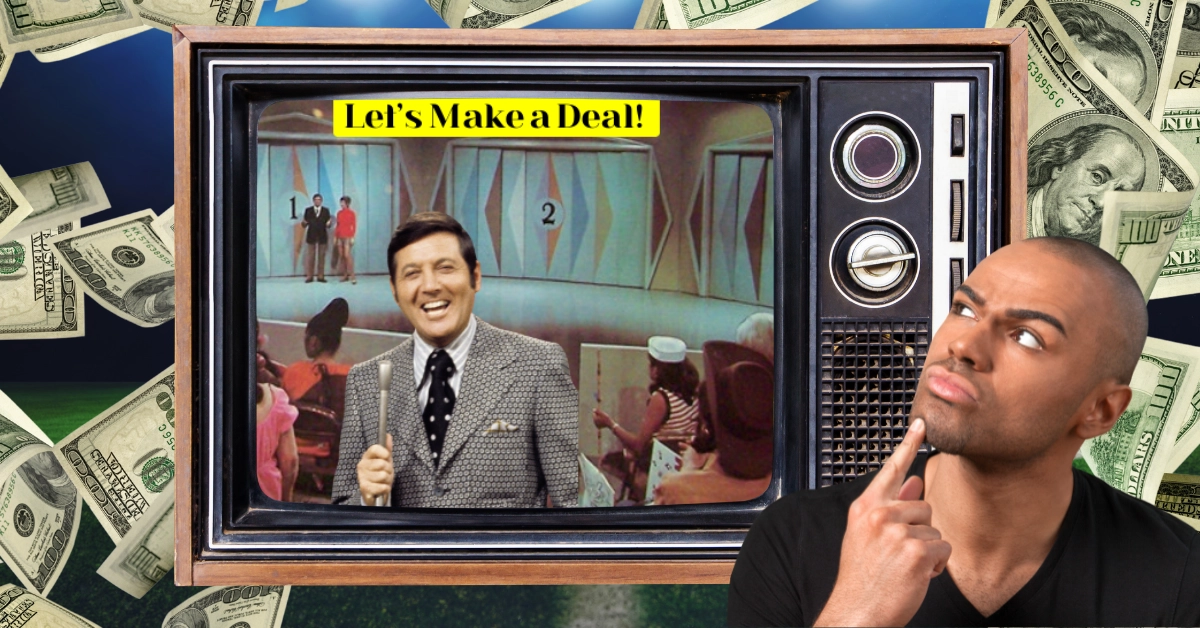
The Monty Hall Problem makes me think of the British comedy troupe Monty Python or a really obese cat because it’s such an obscure name—Monty. But unfortunately, it’s neither. It’s actually based on the old game show Let’s Make a Deal, which was hosted by a man named—you guessed it! Monty Hall.
On this iconic TV show, the contestants had to pick from three doors: one’s hiding a brand new car, and the others are duds. A person would pick a door, but then Monty would show you what’s behind a door that you didn’t choose. And it was a dud. Then he’d ask if they wanted to stick with their original choice or switch. Was he gaslighting them? Trying to mess with their confidence? Who knows.
What we do know about it is that it’s being applied to sports betting. Why this obscure game show moment? We don’t know. But it has to do with understanding probabilities and making wiser choices. Stick around, and we’ll tell you how the Monty Hall Problem can actually give you a leg up in the sports betting world—it could help you make choices that could really pay off!
What Is the Monty Hall Problem?
As we said, The Monty Hall Problem is based on the old game show Let’s Make a Deal, where contestants could win big—but only if they could outsmart their own instincts. The classic “pick a door” scenario seems like a no-brainer, but when the host started messing with them, all bets were off. Is there a way to crack the code in a game of probability?
The TV Game Show Scenario
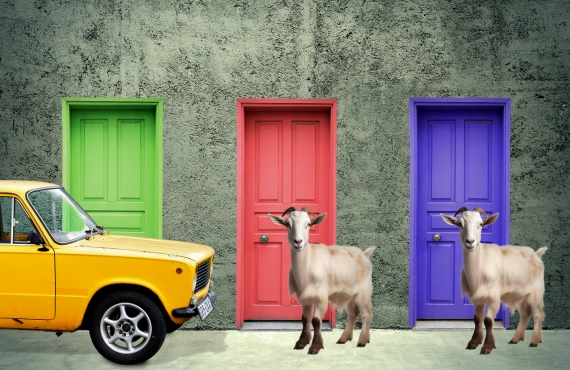
In the Monty Hall Problem, you’re facing three doors. Behind one is a shiny new car, and behind the other two? Goats. Yes, actual living, breathing goats. And unless you’re super into goats, that’s not a prize you want to take home. The contestant picks a door, but before they can find out what’s behind said door, Monty reveals a goat behind one of the other doors. Monty then would ask them if they wanted to stick with their original choice or switch to the remaining unopened door. This makes it a 50/50 shot, right? Either door could have the car! But things aren’t always as they seem…
Explanation of the Probability
Here’s where the math starts to mangle your brain: when you first pick a door, there’s a 1/3 chance you’ve chosen the car and a 2/3 chance you’ve gotten a goat. Monty knows what’s behind the doors, and after you choose, he always reveals a goat. If you stick with your original door, your odds stay at 1/3. But if you switch, your odds jump to 2/3 because Monty’s reveal helped eliminate a losing option. Switching doors doesn’t just feel like a random stab in the dark anymore—it actually improves your chances of getting the keys to the car! Vroom vroom, and don’t forget to honk at the goats.
Applying the Monty Hall Problem to Sports Betting
When you apply the Monty Hall Problem to sports betting, you’re just taking a classic riddle and turning it into a strategy boost for bettors. It revolves around conditional probability—which sounds fancy but just means you are making better choices with some new info in hand.
The Concept of Conditional Probability
Conditional probability basically means the odds of something happening change when you get new information. In the Monty Hall Problem, once the host shows you a door with a goat behind it, the game changes. Although it feels like a 50/50 shot between the remaining doors, the math tells a different story. Sticking with your original pick keeps your chances at 1/3, but if you switch, you’ve now got a 2/3 chance of winning that car. The reason? Monty’s reveal changes the playing field by taking away one of the dud options.
Parallels in Sports Betting
Sports betting works in a similar way! Let’s say you are placing a bet on three teams for a championship. Initially, your odds are divided equally between them. But what if, halfway through the season, one team starts falling apart? That’s like Monty showing you a goat. New info has come in, and it’s time to rethink your bet. Just like in the game show, switching your pick—or adjusting your strategy—will give you a better shot at winning.
Futures betting plays out the same way. If new injuries or changes come up that knock certain teams out of contention, reassessing your bet is the smartest move. It’s like Monty Hall popping up to say, “Hey, one option’s out – want to switch?” And most of the time, switching can turn the odds in your favor!
Practical Examples of Using Monty Hall Logic in Betting Decisions
How do you use the Monty Hall Logic in your betting decisions?
Here’s an Example:It’s the second half of a heated basketball game, and you’ve put your money on Team B to win. You’re feeling confident, but suddenly, their star player rolls an ankle. The odds have now swung, with Team A becoming the favorite. This is where Monty Hall logic kicks in, because you might as well have been shown a goat behind one of the doors after you’ve made your initial choice. Now, you’re faced with new information: a guaranteed dud behind one of the doors (or in this case, Team B’s star player is limping off the court). The question is: Should you stick with your original bet, or “switch doors” and bet on Team A?
Monty Hall’s logic would tell you to switch. Why? Because your original bet was made with incomplete information, just like your first door pick in the game show. Once Monty shows that goat (or once the star player gets taken to the ER), the probabilities shift, and sticking with your original choice isn’t as promising as it was before. By switching, you take advantage of new information and position yourself for a better outcome, much like increasing your odds in the game show by choosing the other door.
Futures and Outrights
Futures betting is where Monty Hall’s logic really makes sense in the long term. At the start of the season, let’s say you’ve placed a futures bet on a team to win the Premier League or the NBA Championship. At that point, each team seems equally positioned (or close enough) to contend, much like the three doors in Monty’s game. But as the season gets going, new info keeps trickling in. Maybe your pick is underperforming, or one of their best players suffers an ACL tear. Meanwhile, another team that wasn’t on anyone’s radar at the beginning is picking up momentum.
Here’s where Monty’s trick comes in again. Initially, sticking to your first choice will feel like loyalty or a gut feeling, but probability doesn’t care at all about loyalty. Just like in the show, you have new information in front of you: a “goat” team that has been effectively eliminated from the race. Adjusting your futures bet now is like switching doors—it may feel dangerous, but the odds have changed, and the logical move is to reevaluate. Hedging your bet by backing another team or cashing out early could be the equivalent of “switching doors” and doubling your chances of making a profit!
Line Movement and Betting Markets
Before games even start, the betting markets are constantly changing—they reflect the shifts in odds as new data emerges. It could be that the weather conditions have altered, there is an injury, or there’s a last-minute strategic move by a team. If you put an early bet on a team, and over the week, the betting line shifts dramatically in the opposite direction because of unexpected changes.
Here’s the sports betting version of Monty Hall’s problem: Should you stay with your original bet or switch sides based on this new information?
Monty Hall’s logic says you should switch! Line movement, again, it’s like Monty showing you a goat, indicates a change in probability. The market’s reaction to new info—like a main player being ruled out—affects the betting odds, and adjusting your bet accordingly is always the smarter play. Too often, bettors get stuck in their original decisions, ignoring the fact that the landscape has changed. The Monty Hall problem reminds us that stubbornly sticking to an initial decision when new information is available is a losing game.
In all these cases, Monty Hall logic encourages flexibility and adaptability in betting. The lesson here is clear: whether it’s live in-game betting, long-term futures, or reacting to line movements, being rigid or stubborn can leave you at a disadvantage. Sports betting, like the game show, is full of variables that can change in an instant. The real skill is knowing when to pivot based on the changes, and that’s exactly what Monty Hall teaches us.
Incorporating this mindset can be the difference between a winning and a losing bet. It’s just leveraging any and all new information in order to adjust your strategy and maximize your chances. Monty Hall’s game wasn’t only about goats and doors; it was about seeing when the odds had changed and acting accordingly. Applying this to sports betting gives you the same kind of edge: the ability to make smarter, more informed decisions instead of just going with your gut.
Common Mistakes Bettors Make by Ignoring Conditional Probability
In the fast-paced world of sports betting, decisions should evolve as circumstances change. Yet, many bettors make costly errors by refusing to adjust their strategies. Ignoring conditional probability is a surefire way to end up on the losing side. Let’s go over two of the most common mistakes that bettors usually make.
Sticking with the Original Pick
One of the biggest blunders in betting is holding on to your original bet, even when the dynamics of a game shift. A classic example might be a bettor placing money on a football team but later learning the team’s star player has left the game. Even with this huge change, many still cling to their initial pick. This is similar to the Monty Hall Problem, where switching your choice after new factors are revealed increases your odds. Refusing to reassess isn’t loyalty—it’s often a recipe for disappointment.
Stubbornness in betting often stems from the belief that your first bet was somehow more valid because you made it early. The smart move is to evaluate as things unfold. Bettors who refuse to switch tactics and hold on to a bad bet are, in effect, playing a game where they’ve already lost but refuse to change their approach.
Overlooking Changes that Impact Odds
Odds can swing dramatically during a game, reflecting developments like player injuries, coaching decisions, or even weather conditions. Bettors who ignore these changes are setting themselves up for a rough outcome. Just like in the Monty Hall Problem, where Monty reveals a goat, betting becomes more predictable when critical shifts happen. Failing to account for these shifts in probability is like sticking with a door when you know there’s a better choice available.
An example is in basketball, where a team’s leading scorer might get into foul trouble early in the game. Suddenly, that team’s chances look much bleaker. Bettors who adjust their bets in response to these developments can capitalize on the changing odds. Those who don’t lose opportunities to make better choices. This ability to adapt is what separates successful bettors from those who consistently come up short.
The bottom line? You should be flexible and respond to the changing dynamics of a game to improve your odds over time! Sticking rigidly to your original bet could feel right in the moment, but the best bettors know when to shift gears and make a better decision.
Below are five hypothetical examples where bettors ignore Monty Hall-like logic and miss out on potential wins by failing to adjust their strategies based on new data!
You place a pre-game bet on the Kansas City Chiefs to beat the Buffalo Bills. Halfway through the game, Patrick Mahomes suffers a minor injury and is benched. The Chiefs’ backup quarterback enters the game, drastically lowering their chances of winning. If you stick to your original bet, you’re ignoring the key new information—much like staying with the original door in Monty Hall when a goat is revealed. The smarter move would be to switch your bet to the Bills, who now have a much better chance of winning due to this game-changing injury.
You bet on the Lakers to beat the Warriors early in the season, banking on LeBron James’ leadership. However, new information comes in during the game: LeBron tweaks his ankle and leaves in the second quarter. The odds begin to shift heavily in favor of the Warriors. Refusing to switch your bet is akin to ignoring the goat that’s just been revealed. Monty Hall’s logic would say to reassess and switch to the Warriors because the new info changes the whole game landscape.
You place a bet on Arsenal to win a crucial match against Manchester United. Before the game, Arsenal’s top striker is unexpectedly ruled out due to illness, but you decide to stick with your bet. This is exactly like the Monty Hall Problem—sticking with a lower-probability option when a better one presents itself. Adjusting your bet to reflect this new information, like switching doors, would increase your chances of success. Manchester United’s odds just improved significantly, and so should your strategy.
You place a futures bet on the Yankees to win the AL East, and they start the season strong. However, midseason, two of their starting pitchers are sidelined with injuries, and the team keeps losing. If you stick with your original bet without considering the impact of these injuries, you’re making a mistake similar to refusing to switch doors in the Monty Hall Problem. The Boston Red Sox, now in better form, present a more logical bet as the season moves forward.
You bet on the Tampa Bay Lightning to beat the Toronto Maple Leafs in a playoff game. Halfway through the game, the Lightning’s goalie leaves with an injury, and the backup is significantly less skilled. The odds swing in favor of the Maple Leafs, but sticking to your initial bet is like refusing to switch doors in Monty Hall. The better move would be to reassess the new situation and place your bet on the Maple Leafs, who now have the upper hand.
In all of these scenarios, bettors who ignore conditional probability would miss the opportunity to make a more informed, strategic bet. The lesson here? Just like in the Monty Hall Problem, sticking to your original choice despite having new information is usually a losing move.
How to Use Monty Hall Insights to Improve Betting Success
Using the Monty Hall problem as a guide to improve betting might sound a little far-fetched, but it’s surprisingly effective. The whole point of Monty Hall’s logic is about realizing that circumstances change, and sticking to your initial choice can sometimes hurt your chances. Let’s look at how this idea can help you make better decisions when it comes to betting, especially when things shift unexpectedly.
Stay Informed and Adapt
Betting isn’t static—things can change fast. A lot of bettors fall into the trap of setting their bets early and then forgetting about them. This is like picking your door in the Monty Hall problem and then ignoring the new info that comes after Monty reveals a goat. To be successful, you’ve got to stay in the loop.
For instance, you might place a bet early in the week because a team’s odds look good, but as game day approaches, something big happens: a key player gets injured, or there’s a lineup change that wasn’t expected. If you’re not paying attention to these developments, you’re missing out on the opportunity to make a smarter decision. Odds can move based on these kinds of updates, and if you’re quick enough to react, you can catch value before it’s reflected in the market.

It’s about being adaptable. Use live updates, track odds changes, and be willing to rethink your strategy if things don’t look as good as they initially did. Staying plugged in with apps or live streams can make a huge difference in today’s sports betting world.
Don’t Be Afraid to ‘Switch’
One of the biggest mistakes bettors make is holding onto a losing bet out of stubbornness. This is called the “sunk cost fallacy,” where you feel like just because you’ve already put money down, you have to ride it out, even when it’s clear that the situation has changed. It’s like sticking with your original door in the Monty Hall problem when all the signs are pointing to a better option.
Let’s say you bet on the Kansas City Chiefs to win a game, but halfway through, their star quarterback gets injured. The odds suddenly swing against them, but you’re tempted to keep the bet because you already made it. But the truth is, the best bettors know when to cut their losses and switch to a more favorable option. You’re not locked into your first choice just because you made it—successful betting is about staying flexible and smart.
Switching your bet in these cases might feel like you’re giving up on your initial instincts, but in reality, it’s about playing the percentages. Just like Monty Hall contestants increase their odds of winning by switching doors, you can improve your chances by rethinking your strategy when the odds shift.
To sum it up, betting isn’t just about making the right pick from the start; it’s about being able to pivot when things don’t go as expected. Monty Hall teaches us that sometimes, sticking with your first choice isn’t the best move. Stay informed, follow the odds, and don’t be afraid to switch things up if the situation calls for it. You’ll start making smarter and more successful bets by staying flexible and not letting pride get in the way.
Conclusion: Monty Hall is the Goat in Sports Betting
Knowing how to use the Monty Hall Problem in your favor isn’t just a cute party trick—it’s a mindset shift that can seriously change the way you bet. The trick? Flexibility. Just like in Monty Hall’s game, sticking to your first choice without looking at how things have changed will leave you at a disadvantage. When new factors come into play, don’t be afraid to switch up your bet if it gives you better odds!
If it’s a last-minute lineup change or unexpected odds movement, being willing and able to adapt your strategy is super important. Betting should never be you stubbornly sticking with what your gut is telling you, so bet smarter and be flexible. Next time, don’t be scared to switch if the situation calls for it—it could be what takes your bet from a loss to a win.
The next time you’re placing a bet, why not channel Monty Hall? Stay sharp, be willing to adapt, and don’t be nervous if you have to switch if it’ll boost your odds of winning. Try it out on your next wager and see the difference it makes! You don’t want a goat, do you?

Alyssa contributes sportsbook/online casino reviews, but she also stays on top of any industry news, precisely that of the sports betting market. She’s been an avid sports bettor for many years and has experienced success in growing her bankroll by striking when the iron was hot. In particular, she loves betting on football and basketball at the professional and college levels.


